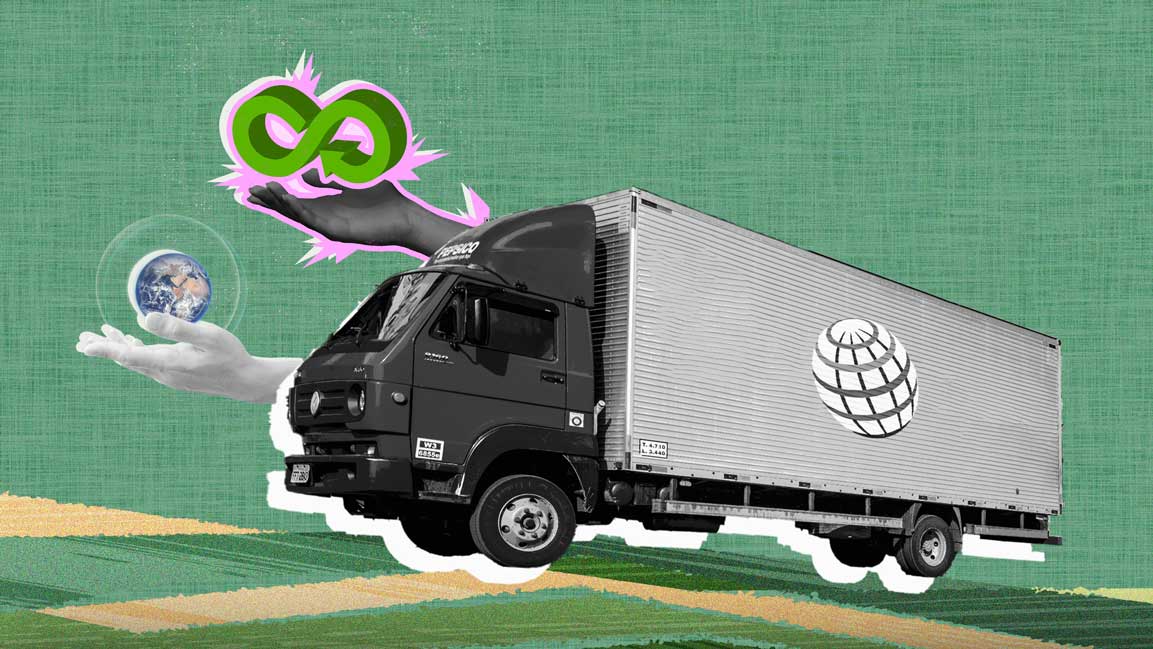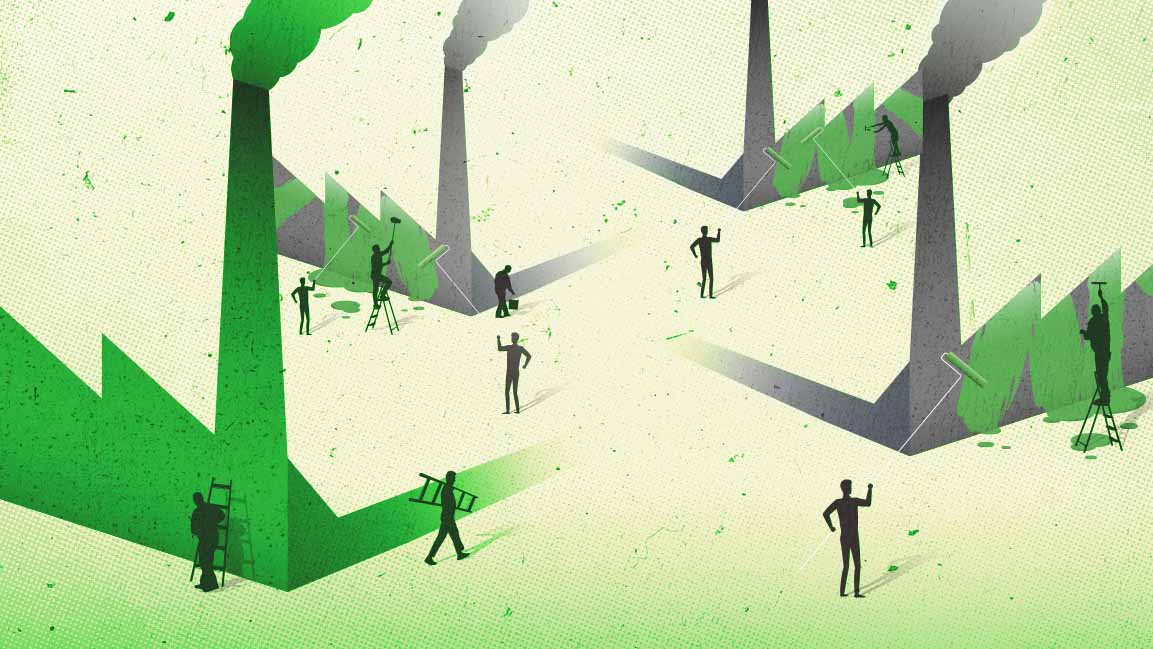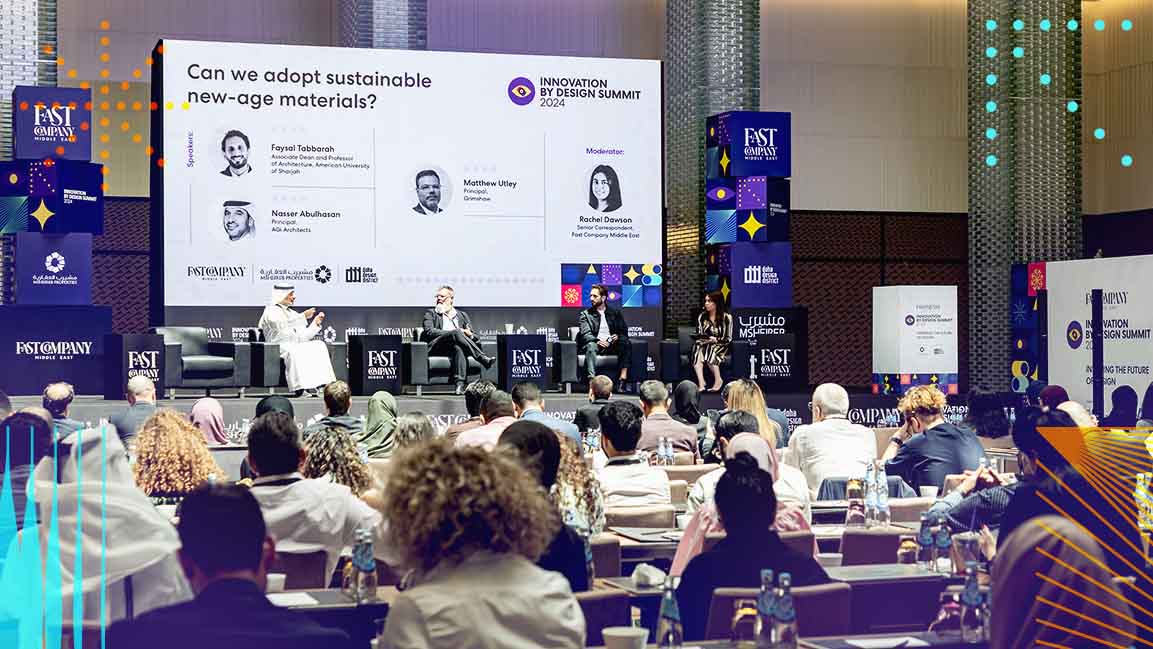- | 8:00 am
From vision to action: How does PepsiCo view sustainable development?
PepsiCo has launched initiatives in the UAE to promote innovation, youth education, and the circular economy in the drive towards sustainability.

The UAE has set a highly challenging and ambitious goal. It seeks to become a global hub and a successful model of the new green economy — supporting long-term economic growth while protecting the environment.
COP28 will be the most important event hosted by the nation in 2023, showcasing its commitment to building a sustainable future and addressing its global efforts towards climate change.
In addition to the government’s vision to achieve these goals, many organizations are adopting strategies to make a sustainable impact, not just focusing on the product but the environment the product is in.
INNOVATION IN SUSTAINABILITY
Sustainable impact cannot be achieved with outdated methods. It requires intention, vision, collaboration, and business strategies to drive growth and create a better future for their business and the planet.
PepsiCo has launched several initiatives to address some of the most pressing issues, including climate change and setting the groundwork for innovation.
In 2021, the company launched its first MENA edition of the Greenhouse Accelerator program, working collaboratively with start-ups to champion sustainability and drive innovation, starting with sustainable packaging and circular economy solutions. The winner was Nadeera, a social enterprise that leverages technology to promote waste sorting at source. Through its ‘Yalla Return’ product, Nadeera drives a trash-for-cash model, providing cash rewards based on the quantity of recyclables consumers turn in.
Following the success of its inaugural MENA edition, PepsiCo launched the second regional edition, focusing on sustainable agricultural practices – once again in partnership with the UAE Ministry of Climate Change and Environment (MOCCAE) and Food Tech Valley.
“Innovation is critical to driving sustainability goals. We need diversity in thought, perspective, and action to move the needle in ways we haven’t imagined before, and the ability to apply this in tangible ways to ultimately foster adaptation, mitigation, and involve relevant stakeholders to effect systemic action”, said Aamer Sheikh, CEO – Middle East, PepsiCo.
According to a research report by Fast Company Middle East, the region has already become a destination for developing startups, and investors are enabling growth by providing capital to businesses and helping to create an environment conducive to economic development. MENA startups raised $3.94 billion in 2022 across 795 deals, which is 24% more compared to 2021.
CHAMPIONING YOUTH ENGAGEMENT
The youth are reshaping the narrative for climate change and making great progress in delivering upon the UN’s SDGs for a greener future.
“We have a responsibility to pave the way for future leaders, and create opportunities for them to unleash their potential, and truly be part of the solution,” said Aamer.
At COP27, PepsiCo announced the Arab Youth Hackathon to engage youth across the region in an innovative challenge to create smarter solutions for solving climate challenges revolving around agriculture, circular economy, water security and renewable energy. Launching this year, in the lead up to COP28, applicants from Egypt, Saudi Arabia, the UAE, Lebanon and Jordan, will be invited for a three-day ideation boot camp followed by mentorship. Working with industry experts, winners will be awarded seed capital to go towards bringing their sustainability ideas to life.
PepsiCo has also partnered with educational institutions around the region to encourage better collection and recycling, encourage refill and reuse culture by scaling innovative platforms like the Aquafina Water Station, and ultimately inspire young people to be part of the change.
Young people worldwide are initiating social movements to urge policy makers to tackle environmental challenges, signaling that their moral standards motivate them to act pro-environmentally. There is a huge opportunity here for the private sector to work collaboratively with changemakers to inspire action.
THE CIRCULAR ECONOMY
The private sector has a critical role in the circular economy, promoting sustainability and helping the planet. The region faces unique environmental issues, including scarce arable land and limited fresh water supply in several markets. By adopting sustainable solutions, the private sector can address these challenges.
PepsiCo has been involved in reducing waste and maximizing resource use, incorporating circular economy principles into its operations in the UAE.
In the UAE, the F&B leader is a founding member of the recently launched Circular Packaging Association which provides a platform for leaders and stakeholders to unite and make an impact. “We’re investing in more sustainable packaging, working with partners to help meet aggressive collection and recycling goals, making recycling infrastructure more accessible, engaging youth in innovative solutions, and providing sustainable choices for our consumers with innovative packaging technologies and business models,” said Aamer.
For example, since 2021, PepsiCo has been working with Bee’ah in the UAE to collect and recycle the equivalent of all Aquafina packaging produced in the country each year. The Aquafina Water Stations, which debuted at Expo 2020, are now being scaled through the Dubai Can Initiative and have helped save over 400,000 single-use plastic bottles, and in GCC markets like Kuwait and Qatar, PepsiCo has launched some of its flagship brands like Aquafina and Pepsi in 100% recycled packaging, with ambitions to scale this across 10 AMESA countries by the end of 2023.
Making a difference doesn’t have to mean waiting for these programs to get up to speed. Companies can take steps today to make daily operations more efficient and to improve sustainability. When a business does take the right steps to improve sustainability and shows its unwavering commitment to continue to do good, it’s noticed.
Aamer added, “At PepsiCo, we believe that there is an opportunity to change how the world produces, distributes, consumes, and disposes of foods and beverages to tackle the shared challenges we face. For that, collaboration is key. It is critical for PepsiCo and other industry members to engage proactively and constructively in policy discussions, and support policy proposals that are broad-based, deliver positive environmental outcomes, provide incentives for sustainability, and allow us to contribute to the design and implementation of the programs.”








































